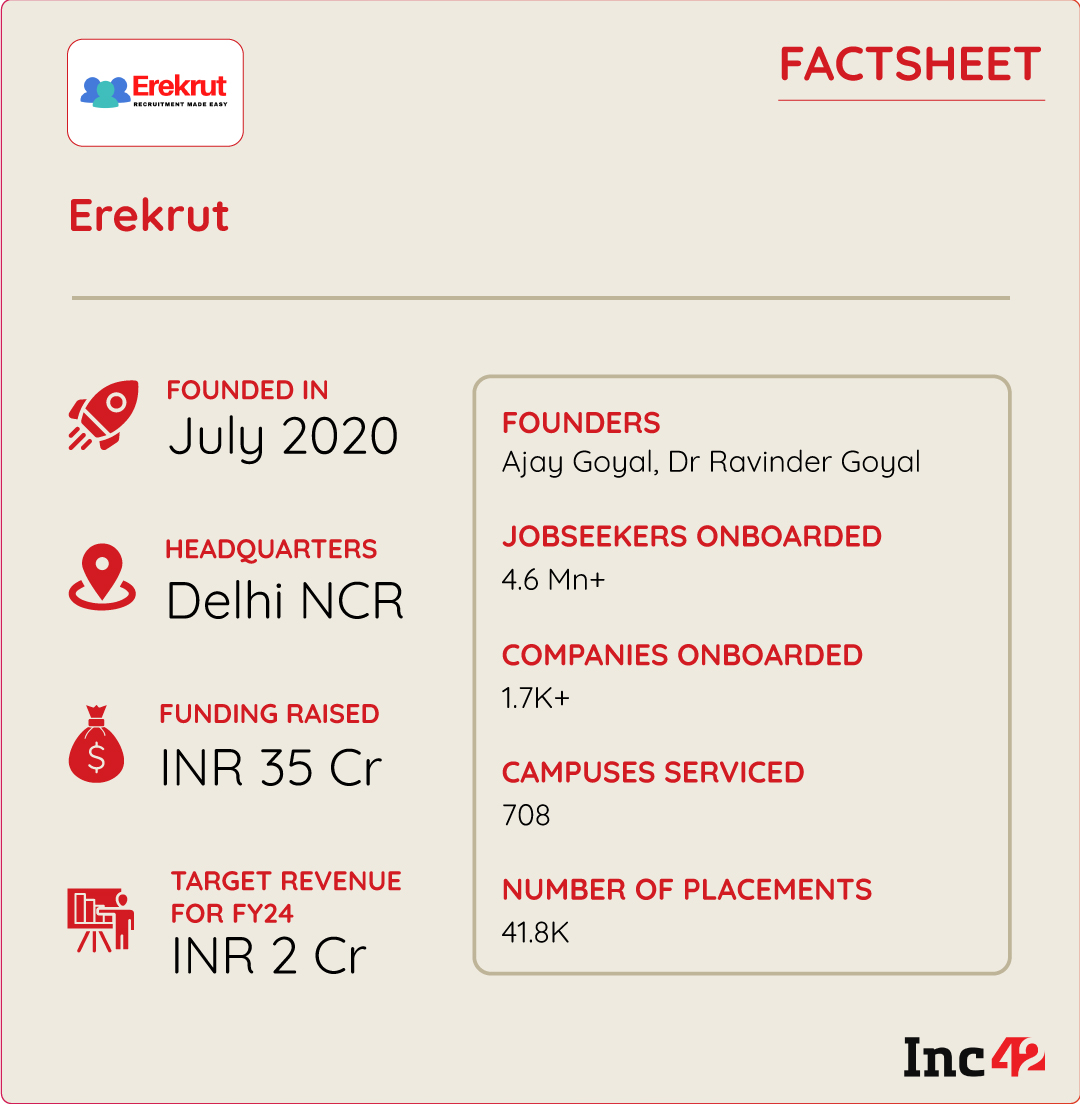[ad_1]
Hiring has been in a state of flux since the beginning of the Covid-19 pandemic. Recruiters have wrestled with evolving options, from fully remote, tech-driven interviews to in-person interactions triggered by the current back-to-office mandates. Jobseekers, too, have seen tectonic shifts, as the ‘Great Resignation’ has given way to mass layoffs, with tech giants amid widespread cuts. But despite a volatile job market, getting suitable candidates through the door remains as challenging as ever. Consequently, companies and hiring managers want to future-proof recruitment and build a talent pipeline efficiently and cost-effectively.
A successful talent hunt has many components, from searching for the right candidate to building an engaging application experience to offering personalised growth plans. Moreover, staffing needs to be fast and scalable, or companies tend to lose out on top talent, revenue and brand credibility. In essence, nothing works better than swiftly finding best-matching candidates for job roles and getting tasks automated to stay ahead of the curve.
Ajay Goyal, a fashion student at Amity University, saw the other side of the coin, though, when volunteering for his university’s campus-to-corporate programme in 2019. At the time, it was evident that traditional hiring would require fixing due to its lengthy cycles, delayed responses to candidates and overall impersonal approach that failed to attract or cater to top talent.
Not one to let things drift, Ajay approached his father, Dr Ravinder Goyal, who had nearly three decades of professional experience in vocational training and placement. Together, they set up Erekrut in 2020, which uses advanced technology to connect recruiters, jobseekers and campuses on a unified platform, automates tasks and streamlines the hiring and placement process to mitigate delays.
A key feature of this platform is a remote pre-hiring assessment tool that identifies the best-fit talent for a specific job role. A recruiter can customise the pre-employment test based on their requirements and quickly determine who has met the threshold, which will speed up their candidate search. The platform also uses ethical AI and data analytics to evaluate job applications and match those with suitable openings for bias-free candidate matching. Earlier, hiring teams had to sift through résumés manually for hours and might still miss an excellent candidate.
Erekrut’s hiring tech solutions have resonated well with employers/recruiters (B2B segment) and jobseekers (B2C). It claims a talent pool of more than 4.6 Mn and has partnered with 1.7K+ companies, including industry giants like Paytm, Zomato, Amazon India, Swiggy, Myntra, Indigo and more. The startup has also onboarded 700+ academic institutions to facilitate campus recruitment.
The startup focusses on several industry segments such as marketing and advertising, consumer service, human resources, programme development, sales and more.
In May 2022, the startup raised INR 35 Cr in its pre-seed funding round, which included an INR 1 Cr fund infusion from its founders.
As part of its ongoing bridge funding round, Erekrut plans to raise INR 2.5 Cr in the next two months and another INR 25 Cr in the next six months in its pre-series A funding round to scale and grow.

How Erekrut’s Proprietary AI Tech Matches Employers With Top Talent
Using AI algorithms, Erekrut has developed its proprietary solution for precision-matching candidates with jobs that fit their skills and preferences.
At the B2B level, access to these talent analytics is vital for companies and recruiters to ensure fast candidate screening and spearhead their organisations’ growth. They can customise the assessment process, guide candidates through different assessment levels. Additionally, one can manage candidate profiles using the platform’s application tracking system (ATS) and can effectively communicate via SMS and email by sending notifications using Erekrut tools. Erekrut has also set up a student and alumni management tracker system similar to ATS to enable hassle-free campus recruitment and placement.
Here is a look at how jobseekers and recruiters can leverage the platform to make hiring easy.
A jobseeker’s journey on Erekrut: After signing up, one must create a detailed profile, which will feature qualifications, skills, experience, preferences, personality traits and learning styles. Next, they can explore the featured jobs and the pre-employment assessment tool on Erekrut helping jobseekers gauge their aptitude and benchmark their competence. When candidates write the pre-hiring test, their responses are automatically analysed, providing the recruiter insights into their skills and readiness for the job. This leads to a faster and more efficient hiring process.
Ajay claims that the startup’s integrated database has 102K questions customised for 1.29K distinct job roles to deliver comprehensive assessments. In the next four months, the startup aims to create another set of 80K questions for 1k job roles. The startup deep-dives into candidate data and uses analytics to provide a nuanced understanding of a candidate’s suitability, the CEO added. Using the premium features, candidates may even reach out to recruiters directly through SMS-to-Recruiter.
A recruiter’s journey: Recruiters must register and set up their profiles to post jobs on Erekrut. The platform offers an ATS to facilitate quick and efficient application screening while hiring professionals can customise pre-hiring assessments or add tests to conduct a thorough evaluation of candidates. The startup provides candidate data analytics to offer data-driven insights, enabling hiring teams to refine their strategies. Additionally, recruiters can use communication tools to interact with applicants and potential candidates for better reachout. Once the selection process is complete, a recruiter can extend a job offer by issuing a letter of intent (LoI) directly through the platform, expediting the hiring process.
The platform has also developed Campus Connect, a feature connecting recruiters with educational institutions for hiring freshers. Some of the features of Campus Connect are SMS and email notifications to connect with potential candidates, access to a vast pool of pre-hiring assessment questions (100k+), a library of 2500+ job description templates, advanced filters in ARDEX (advanced candidate database search) for precise candidate searches.
Revenue generation: Erekrut generates revenue from B2B and B2C users – recruiters, campuses and jobseekers – through various subscriptions and service offerings. For recruiters, it offers four subscription plans: Amateur (free for 90 days), Startup (INR 8K for 365 days), Pro (INR 15K for 180 days) and Enterprise (INR 35K for 365 days). These plans enable job posting, email alerts, access to applicants/talent pool and other plan-specific features.
Campuses can use the Campus Connect tool for free or pay for a Pro plan (INR 25K for 180 days) to access limited company invites.
Jobseekers can opt for Pro Candidate (INR 300 per month) and Erekrut Premium (INR 500 per month). They pay for job applications, video resume uploads and contacting recruiters via SMS.
Erekrut plans to earn from promotions and advertisements on its website, expanding its revenue channel.
From Initial Hiccups To Product-Market Fit: How Erekrut Hit Its Hiring Nous
Even before the beta version was launched in 2020, the Goyals were aware of the fundamental challenges the startup would face – namely, market penetration, rapid adoption of a tech-driven hiring process and creating brand credibility among corporate users and jobseekers. A lack of resources in terms of workforce and finances also hit them hard.
It meant that the new kid on the HRtech block had to be frugal and identify the areas that would yield the highest return on investments. Given the ground realities during the pandemic, Ajay knew that ‘online’ and ‘remote’ would be the buzzwords, at least for the next few years, and companies ready to recruit would prefer tech-driven platforms and automated tools to future-proof hiring. In essence, falling behind in technology could hinder Erekrut’s growth potential.
Keeping up with the latest technology trends was a challenge in pandemic times. However, Ajay decided to counter it by instilling a culture of continuous learning within the organisation. This involved organising regular training sessions and workshops to keep the team up-to-date with the latest developments in the hiring sector and maintain a competitive edge in the market.
Building brand credibility was not easy, though, for a new player. But throughout Erekrut’s journey, its founders have focussed on a positive user experience and robust customer support to ensure operational excellence. The CEO recalled how customer care responded with a swift resolution as soon as a glitch occurred.
“We want our users to have faith in our UX design. A smooth, seamless user experience keeps people engaged, leading to greater usage and adoption,” he added.
Ajay is optimistic that Erekrut will scale up without compromising user experience due to increasing traffic. To ensure excellent UX even during traffic spikes, the startup has invested in robust backend infrastructure and adopted scalable cloud solutions.
Achieving a successful product-market fit required strategic marketing campaigns, extensive digital outreach and constant product enhancement powered by feedback from Erekrut’s fast-expanding user base, according to Ajay.
For instance, when the platform was in alpha, it started reaching out to corporations and campuses via digital giants like Google, Meta and the like. As technology increased its reach and fit as a hiring enabler, Erekrut saw daily registrations of jobseekers between 500 and 1K and more than 15K individuals started writing assessment tests.
How The Future Will Pan Out For Tech-Assisted Smart Hiring
In a global market flooded with HRtech/worktech solutions, technology is dramatically changing the entire hiring process, and the number of digital job searches is growing phenomenally. For instance, 61 Mn users look for jobs on LinkedIn every week and Erektut’ founder-CEO, Ajay Goyal, puts it at 300 Mn per month on Google. More importantly, almost all job search portals now offer premium services to corporate houses for screening and vetting candidates.
Globally, the online recruitment tech market is estimated to grow from $11.9 Bn in 2023 to $30.9 Bn by 2030. By that time, India will be home to 1 Bn working-age adults, according to an EY estimate, which is likely to drive tech-assisted smart hiring further.
The Erekrut CEO thinks there will be excellent growth opportunities in the near future and has set his eyes on ambitious goals. By the end of Q4 FY24, the startup aims to reach 10 Mn jobseekers from the current 4.6 Mn, a 117% jump, and 100K daily visitors. It will also engage with 3K+ recruiters and 2K+ academic institutions for corporate and campus hiring.
Additionally, it will expand its network through strategic partnerships, participate in career fairs and drive word-of-mouth marketing to effectively promote the platform among students, alums and campus hiring teams. These endeavours are part of Erekrut’s multifaceted strategy to drive growth.
Ajay thinks that in the next two to three years, the hiring landscape will witness significant transformation driven by next-generation AI/ML, virtual reality and augmented reality, which will enhance UX for jobseekers and recruiters.
“Erekrut will further integrate various methods such as psychometric, adaptive and gamification assessments to improve its measuring standards,” he added.
Industry experts also believe that future focus will be more on the quality of automated solutions, and companies with limited resources may find it challenging to match up.
“Think of the era of print resumes and how candidates thrived on years of experience. Now it is all about skill acquisition and problem-solving, how fast new skills are acquired and contextually used,” said the senior manager of a Pune-based HRtech firm.
“Similarly, companies specialising in hiring tech will need to track not only a candidate’s competence and aptitude but also their potential cultural fit. The use of new-age tech like generative AI can play a pivotal role here.”
Emerging at the forefront is an overarching trend where big players with deep pockets are creating unified platforms for finding jobs and hiring talent – all in one place. Competing with the likes of LinkedIn, Indeed, Glassdoor, or Naukri could be tough for Erekrut, ZingHR, HYRGPT, CredoHire and the rest of the innovative startups trying to reimagine recruitment as we know it.
Can they emerge as powerful disruptors?
[ad_2]
Source link





